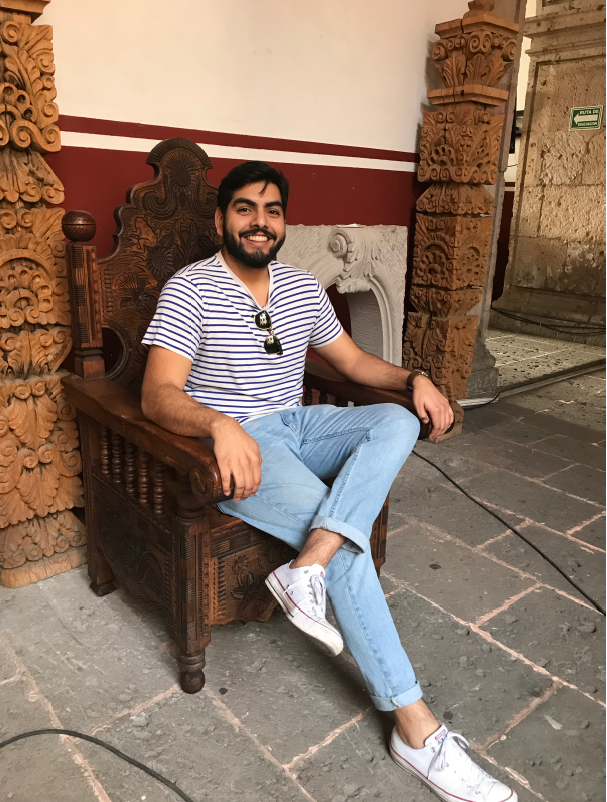
The OMA has hosted numerous interns over the past 10 years and this past academic year, during winter and spring 2020, we hosted Ismael Pardo, an OSU senior majoring in history and religious studies. Over the course of 5 months Ismael worked on various projects. He updated the Oregon Multicultural Communities Research Collection by adding documents to the collection and reorganizing it, and due to the need for him to work remotely during spring term, he transcribed 3 oral history interviews about the 2015 Students of Color Speak Out event. Lastly, he worked on writing interviewee biographies and interview summaries for the Oregon Higher Education Oral Histories Collection.
Below is his reflection on his overall internship experience:
“Since beginning college, I knew that I wanted to study history and help make it more accessible to others. As a first-generation Chicano student, and due to the lack of focus underrepresented people’s histories receive, I was also painfully aware of the value history contained for an underrepresented person in the United States. It is a link to our past, a past that is too often not taught to us. I want to work on changing that. My internship at SCARC provided me with a unique opportunity to be directly involved in the preservation of histories belonging to underrepresented groups and invaluable experience for my future academics and career. I could not have passed it up.
At first, I was sure that to pursue my goal I had to become a high school history teacher. In fact, this goal was the main reason I transferred from the University of Oregon to Oregon State University (the dual degree program poached a duck!). It wasn’t until the spring term of my senior year that I realized that I didn’t want to just teach history to students (although this is still a worthy cause); I wanted to create it. I wanted to write it. So, I postponed graduating, decided to take another year of undergrad, and added Religious Studies as a second major. I used that year as a year to prepare myself to apply to graduate programs in history.
Fall term 2019 was full of applications and GRE prep and test taking. Winter term, I applied and was hired on to a SCARC internship to work with Natalia Fernández on the Oregon Multicultural Communities Research Collection. I was thrilled to work in the preservation of historical documents, especially those that were directly associated with underrepresented Oregonians (which indeed, I have been one for the past two decades!). And while I was involved with organizing and introducing new documents to Collections, the most impactful experience I had while working as an intern occurred one day as my shift was beginning. Natalia was upstairs in the Special Collections and Archives Reading Room meeting with a group of older gentlemen. I snuck in, placed my backpack and jacket in the storage room around the corner, and began setting up my laptop for another day of archival work. The proximity of the research tables made it impossible for me to not overhear some of the conversation that was occurring some feet away. The men were there to donate some artifacts and documents to the archive and were talking to Natalia about the process. After some time passed and I had laid out the materials and documents I was going to work with, one of the men spoke to me. “Hablas español, mijo?” I responded that I did indeed speak Spanish, and that I was at his service. He motioned me over and asked me for directions to the OSU César Chávez Centro Cultural, which I provided in Spanish. Natalia also offered her assistance in Spanish. I accompanied both the men and Natalia downstairs with a document dolly, all the while speaking to the man in Spanish about all of the things that he and his compadres had done. He told me about his civil rights work, his work with the Logging workers, and the establishment of the Colegio César Chávez in Mt. Angel, Oregon. I listened to his story intently, received the documents they were donating, said goodbye, and began walking back to the Library.
This interaction made me acutely aware of the sometimes precarious relationship between the community and the local archive. I had gotten the impression that there was a little bit of stress regarding the permanent nature of the archival donation. I think it’s probably well warranted too. The man had entrusted our archive, and in some sense me, an intern, with the curation and preservation of his and his community’s history. It was a radical action, and it was an awesome responsibility. Before that day I had been dealing with documents and historical agents that I had only met through documents, ink, and paper. It may have been relatively easy to understand intellectually that these agents were real people, but it was this comparatively brief interaction with a group of Latino men and their historical donation that truly drove home the reality and gravity of what it was that both an archive and the researcher does. We, both archivists and researchers, have a solemn duty to do People justice in the preservation and telling of their history.
In the process of working as an intern I received admittance, and accepted the offer presented to me, to the University of Michigan as an incoming History Ph.D. student. My experiences as an intern at SCARC have been very informative and influential. My approach to the writing of history will be guided by the gravity of the duty that I have discovered in the course of my internship. I will also use my experiences as an archival assistant as an advantage. As I continue my goal to preserve, write, and disseminate the histories of underrepresented groups, I believe my experiences and new perspective as an archival assistant will not only be an asset, but prove invaluable.”
~ Ismael Pardo, OMA 2020 Intern

